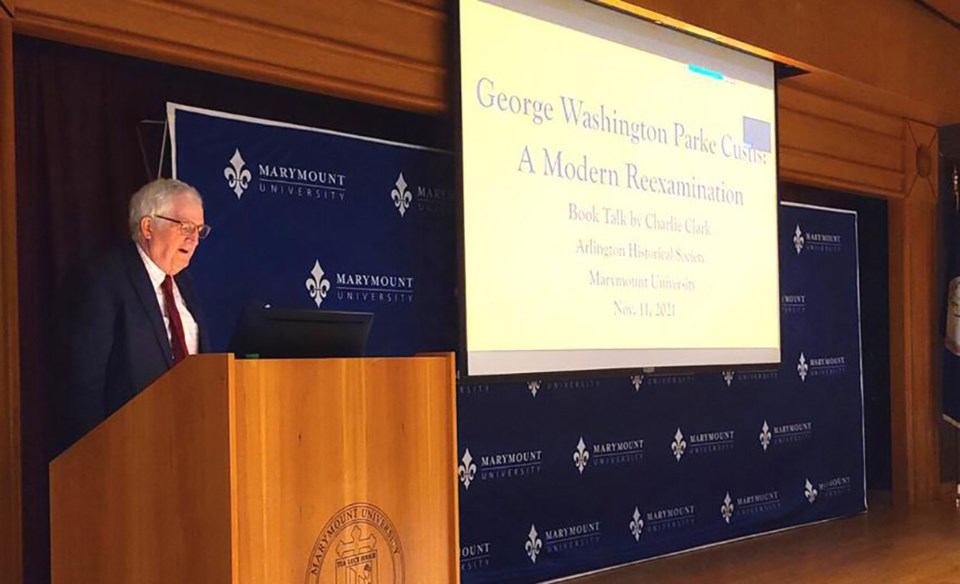Charlie Clark – a journalist, author and historian who chronicled Arlington’s history, warts and all – died Nov. 15 after a battle with Creutzfeldt-Jakob Disease, a debilitating brain disorder.
He was 70 years old.
Clark was “the best Arlington historian I know – I always learned [from him],” said County Board member Libby Garvey, who on Nov. 15 had been called on to fill in for Clark as keynote speaker at the annual luncheon of the Inter-Service Club Council of Arlington.
At that luncheon, held at a point in which it was clear Clark was unlikely to survive much longer, friend and former county Treasurer Frank O’Leary, asked the group to send its best wishes to him in any way they could.
The message O’Leary himself sent: “We know how much you love Arlington; we want you to know how much Arlington loves you.”
A resident of the county most of his life, Clark caught the journalism bug while a student at Yorktown High School. A member of the school’s Class of 1971, he was inducted into its Hall of Fame in 2018 for his professional success and for serving as the unofficial chronicler of the high school’s history.
During his professional career, he served as a reporter and/or editor at Congressional Quarterly, the Washington Post, Atlantic Media, National Journal and Time-Life Books.
Through it all, first as a sideline and then in retirement, Clark was a spirited chronicler of Arlington’s past, from George Washington Parke Custis (penning a full-length biography of the man responsible for the Arlington House plantation), to iconic architecture lost over time, to the American Nazi Party, which at one time was headquartered on Wilson Boulevard.
In terms of output and scholarship, Clark likely was the equal of an earlier chronicler of county history, Cornelia B. Rose Jr. (1907-76), author of “Arlington County, Virginia: A History.”
Clark’s latest tome – “The Life and Times of the Falls Church News-Press” – detailed the history of that newspaper, for which he served as the “Our Man in Arlington” columnist for years. It was published in October.
Long active in the Arlington Historical Society, Clark was a frequent and enthusiastic speaker at community events. Just two months ago, he conducted a question-and-answer session with philanthropist/preservationist David Rubenstein as part of the historical society’s annual meeting.
Clark often was seen at community events, doggedly gathering material for his weekly news column.
“He brought joy to many through his storytelling and will be greatly missed,” Del. Patrick Hope (D-Arlington) said in a social-media post.
“But because of his enormous contributions to Arlington’s rich history, he will always be remembered,” said Hope, who served with Clark on the Arlington Historical Society’s board of directors.
Clark also was active in a number of community groups. “Such a great volunteer,” Garvey said.
Speaking at the Inter-Service Club Council event, O’Leary quoted Clark’s comments in a 2021 radio interview, describing why he spent the time exploring and documenting Arlington’s past for the historical record.
“I wondered, how might curiosity help me understand my community better, or help me better my community through understanding,” Clark said then.
Born July 6, 1953, in the District of Columbia – which O’Leary noted was one of the few key moments in Clark’s life that didn’t center on Arlington – Charles Stuart Clark was the son of a CIA-officer father and an editor/translator mother. After graduating from Yorktown, he attended the University of Oregon and later McGill University.
He is survived by his wife, Ellen; daughters Elizabeth and Susannah and their husbands; two grandchildren; and a brother and sister.
Information on a memorial service will be announced at a later date. In lieu of flowers, the family suggests donating to a local charity of choice.



